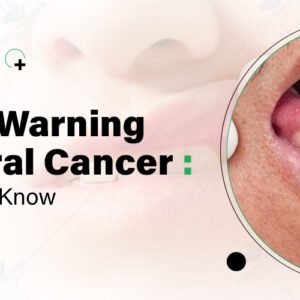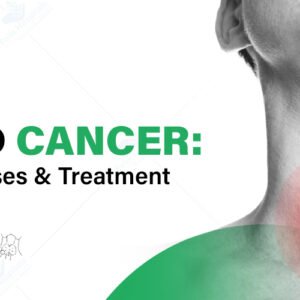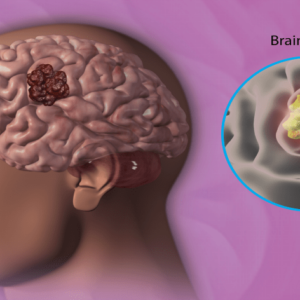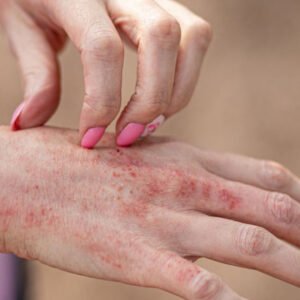Cancer Treatment in Homeopathy.

Cancer is a chronic disease that has remained incurable despite many significant advancements in medical science. Most of the present-day treatments, whether in conventional allopathic medicine or alternative medicines, primarily focus on managing symptoms, extending the lifetime, and improving the quality of life of the patients by suppressing the aches and pains. In this blog post, we will explore how homeopathic medicines and remedies can help patients achieve complete cancer remission, enabling them to regain their energy without experiencing any side effects.
What is Cancer?
Cancer is a disease caused due to certain changes in genes that control the cell functions of our body. There are three types of genes whose changes can contribute to cancer. They are proto-oncogenes, tumor suppressor genes, and DNA repair genes. Cells in the human body undergo programmed cell death, often referred to as apoptosis, when they become old or damaged. In normal cases, this is a controlled process, and no unwanted cells grow or die without getting the proper signal from the body. But sometimes, the cells ignore these signals that tell them to stop growing or die. Hence, they grow uncontrollably, move to other parts of the body, and form tumors or lumps of tissues.
The tumors are of two types, cancerous (malignant) and non-cancerous (benign) tumors. Cancerous tumors spread to different parts of the body through a process known as metastasis. This means that cancer cells can break away from the original tumor, move through the bloodstream, and form new tumors in different organs of the body. This ability to spread and invade surrounding tissues makes malignant tumors severe and life-threatening.
Non-cancerous tumors can be quite large, but they don’t spread or invade other tissues or don’t grow back once removed. However, some non-cancerous tumors can be serious depending on the location and size. Tumors on the glial tissue, which holds and supports nerve cells and fibers (gliomas), and tumors on the membranes that cover the brain (meningiomas) are two examples of benign tumors that affect the brain.
What are the stages of Cancer?
Doctors often distinguish cancer into different stages to describe the extent of the disease and to develop a treatment plan. These stages are determined by factors including the tumor’s size and location. TNM (Tumor-nodes-metastasis) is the most commonly used cancer staging system. T stands for the primary tumor. N stands for lymph nodes and indicates whether a tumor has spread to your lymph nodes. M stands for metastasis to describe whether the cancer has spread to a different part of the body. Most cancers have four stages.
Stage I: The cancer is located in a small part of the body and hasn’t spread to lymph nodes or other tissues.
Stage II: The cancer has grown, but it hasn’t spread.
Stage III: The cancer has grown larger and has possibly spread to lymph nodes or other tissues. Stage IV: The cancer has spread to other organs or areas of your body.
Treatment Methods and Approaches.
Cancer can affect any part of the body and there are more than a hundred different types of cancers. They are usually named after the organs or tissues where the cancer forms. For example, cancer that forms in the breast is called breast cancer, and that forms in the brain is called brain cancer. Even when cancer spreads from one part of the body to another, it is still recognized based on the initial affected area. Cancer treatment can be categorized into two main approaches:
| Palliative Approach | Curative Approach |
|
|
The ultimate goal of all the present-day treatment methods is to prolong patients’ lives by providing relief and comfort. Chemotherapy, radiation therapy, surgery, and other alternative approaches serve as means to achieve this goal. These processes try to control the uncontrollable growth and spread of cancer cells by destroying the younger cells and removing the affected areas through surgery or radiation. Unfortunately, these are just different ways of palliation and symptom relief. They won’t cure the disease; instead, they may make life more challenging with numerous side effects.
According to homeopathy, every living being or organism is constantly engaged in defending itself against hostile environments. When the organisms are attacked, they utilize all available means to combat these hostile forces. This ongoing struggle between offensive and defensive forces can lead to either death or survival. The symptoms that arise during this struggle are identified as diseases.
In short, all types of diseases are a form of defensive mechanism employed by the body. The three different types of defensive mechanisms are Physiological defense, constructive defense, and destructive defense. Cancer comes under the third category of defensive mechanisms, known as destructive defense. When the primary defensive mechanisms are not sufficient to take care of the invading hostile stimulus, the cell may change at the genetic level. It shifts its gear of defense to defend or to save the whole organism by destroying a part of it. In the case of cancer, it is the damage caused to specific genes that result in the uncontrollable growth of cells.
Homeopathy focuses on the underlying causes of cancer rather than the symptoms. It treats cancer by regenerating and restoring the damaged cells. This process will regulate the growth of cells, which will result in complete cancer remission without producing any side effects. Homeopathy is the only treatment approach that aims and claims a complete cure for cancer. Addressing the root causes of the disease has proven to provide relief, improve the quality of life, and even achieve complete recovery from diseases.











